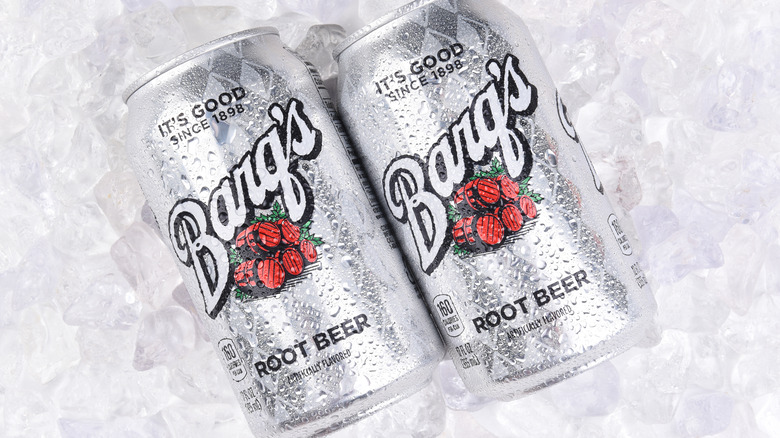Not All Root Beer Is Caffeine-Free
While many of us prefer coffee before conversation, not everyone chooses to consume caffeine. The FDA says healthy adults can safely consume 400 milligrams of caffeine each day, but they also point out that pregnant or nursing mothers, children, adolescents, and people with some health conditions should limit caffeine consumption or consult a health care provider to discuss how much caffeine is safe. Consuming too much caffeine can cause serious health problems like seizures, heart arrhythmia, and damage to the liver and kidneys. The FDA has issued warnings about concentrated or pure caffeine about concentrated or pure caffeine and supplements containing huge amounts of the drug.
Mega doses aside, some people need to avoid caffeine altogether. Current regulations do require any added caffeine to be listed among a product's ingredients, but don't require labels to disclose the amount of caffeine in food or beverages, according to an article in the Journal of Caffeine Research. Just a few of the health conditions that might warrant avoiding caffeine include glaucoma, heart arrhythmia, IBS, sleep disorders, anxiety, and epilepsy, according to Eat This, Not That. For many reasons, it's important to know for certain whether a food or beverage contains caffeine. While we all know that can of Monster is caffeinated, sometimes we assume a category of soft drinks, like root beer, are decaf when they're not.
Most, but not all, root beer is caffeine-free
Recipe Tips lists the nutrition information for root beer, and the entry says the drink contains zero milligrams of caffeine. If you're avoiding caffeine, that makes root beer a safe choice, right? As it turns out, that's not always the case. Healthline points out that while most of the major brands of root beer — A&W, Mug, and Dad's — are indeed free of caffeine, Barq's root beer is caffeinated; one 12-ounce can of Barq's root beer contains 22 milligrams of caffeine. Interestingly, Diet Barq's is caffeine-free.
It should be noted, 22 milligrams of caffeine isn't particularly high when it comes to soda brands in general: a 12-ounce can of Coke contains 34 milligrams, Pepsi has 38 milligrams, and Mountain Dew has 54 milligrams of caffeine, according to Science ABC. For people who need or want to avoid caffeine altogether, though, it's important to read the label of your root beer to determine if caffeine is on the list of ingredients. When you're craving the flavor of root beer and want to know for sure it's caffeine-free, it pays to do your homework.

